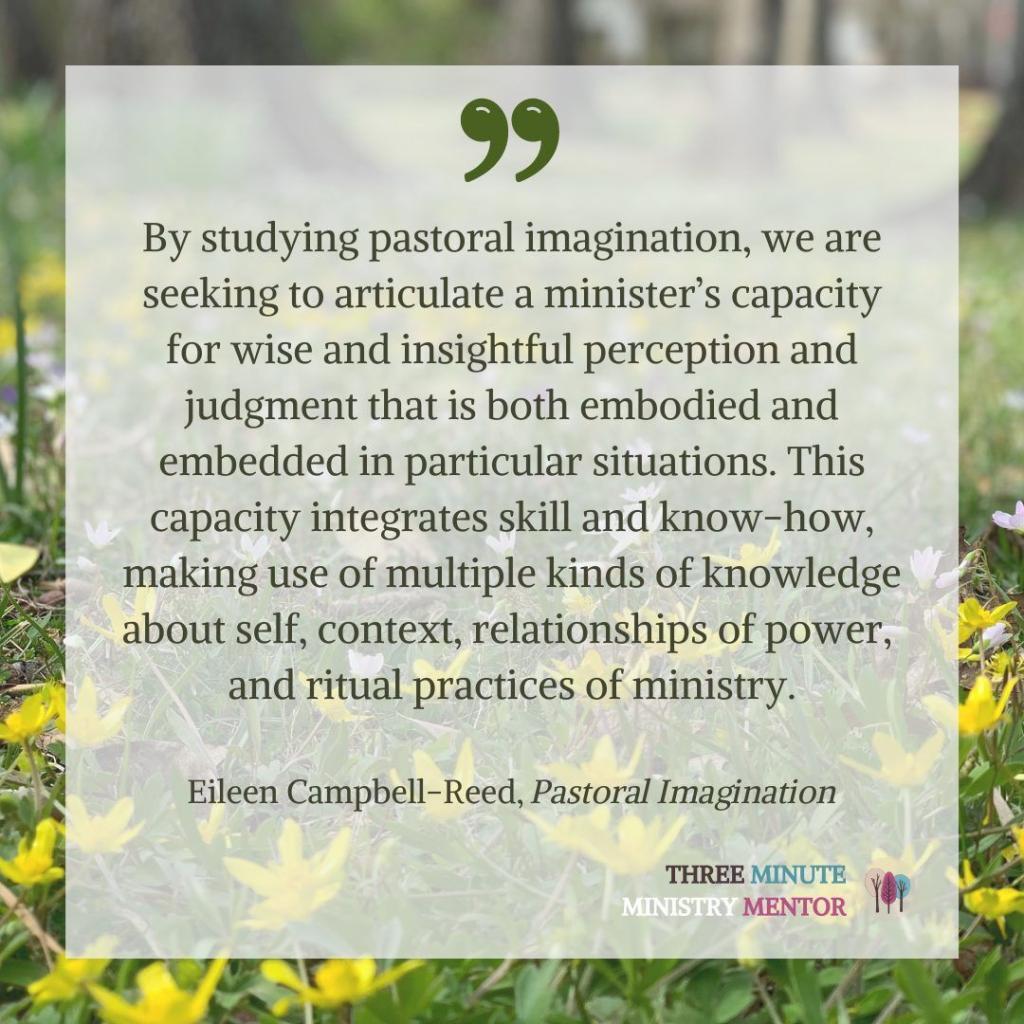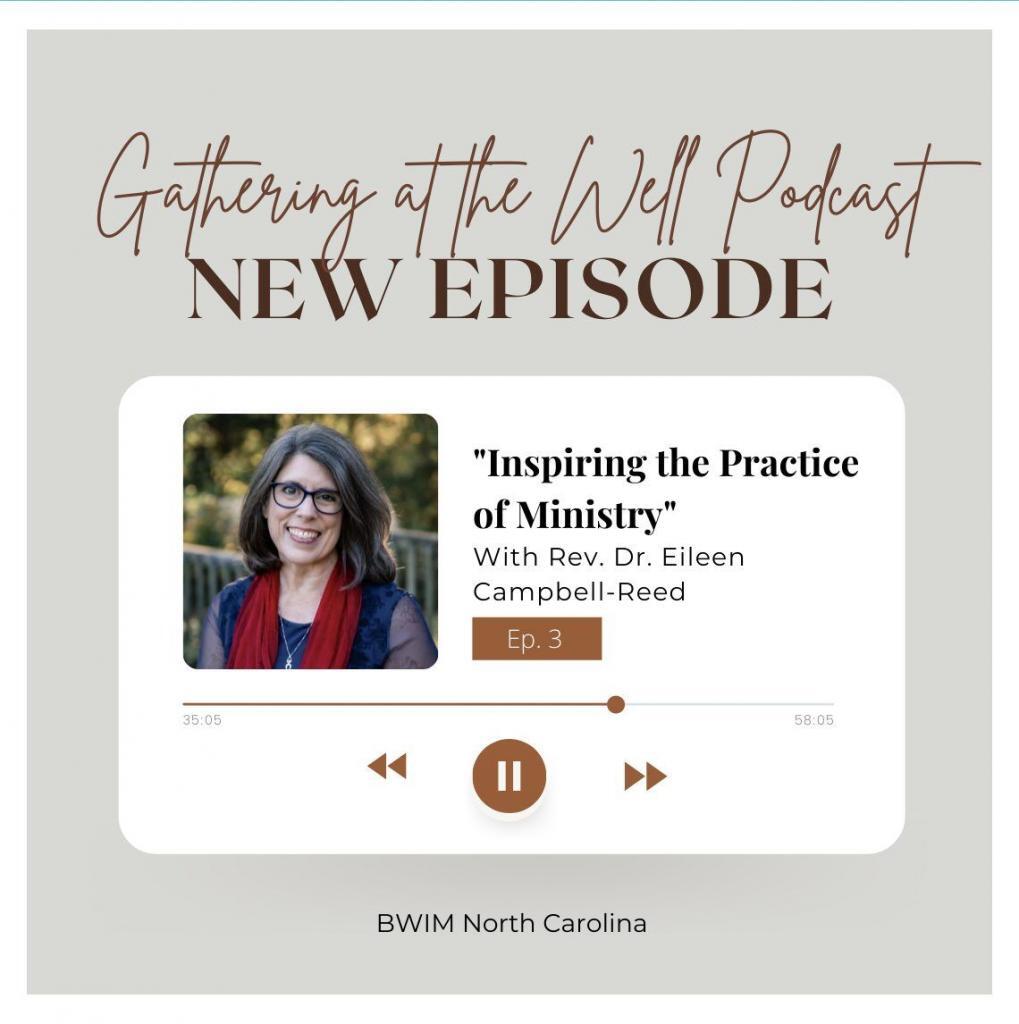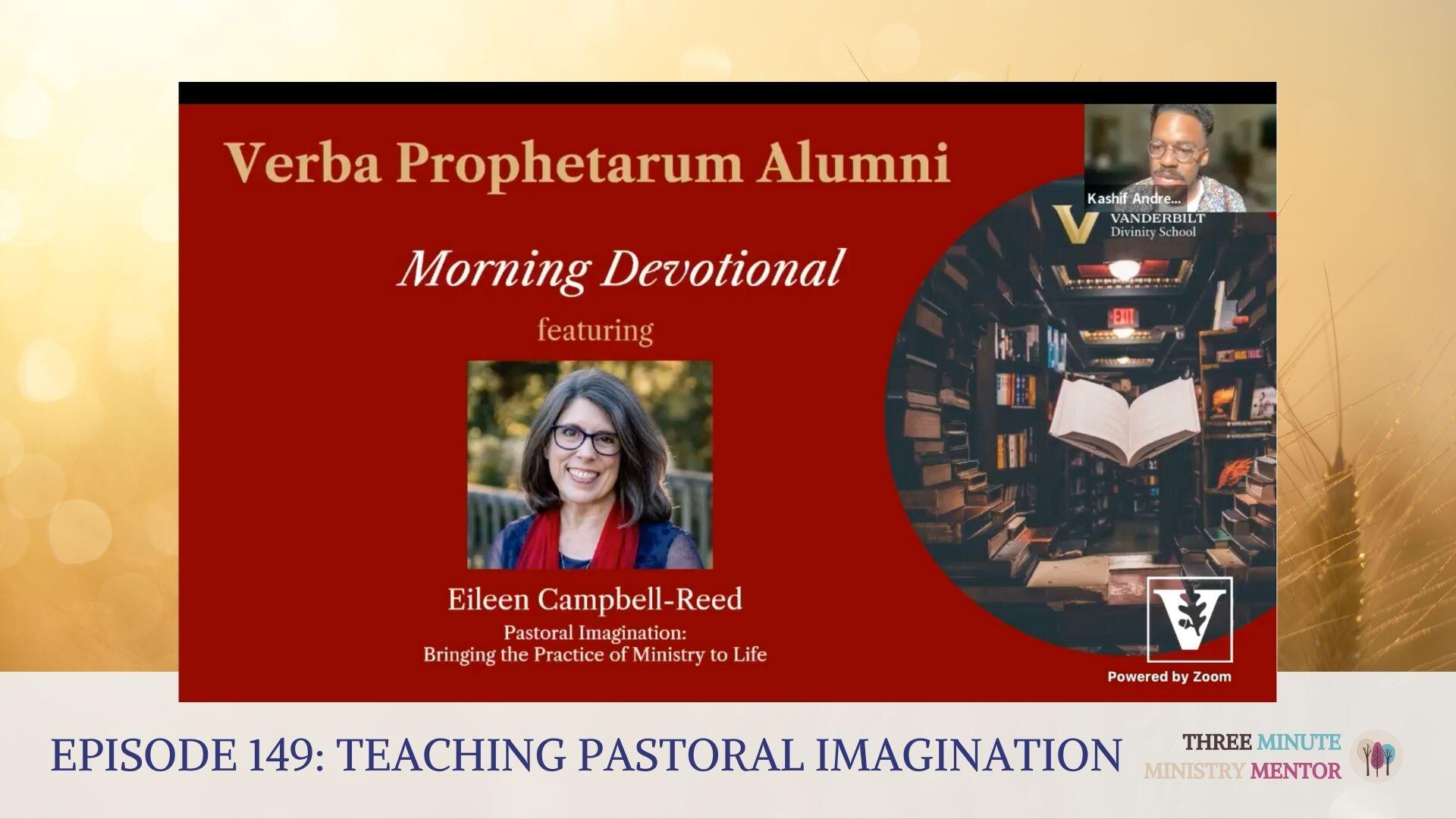Perhaps you have been hearing about the concept of pastoral imagination for a while. We hope so! And maybe you are wondering: how would someone teach that? Today, let’s talk about teaching pastoral imagination, the concept, the book and the research project behind it.
Chris Scharen and I have spent more than a decade now studying how people learn it. You can discover more about that over at our research site. Today I want to share with you something about how to teach pastoral imagination. While it is taught and learned in many contexts, I am focusing on the seminary setting.
How does one teach pastoral imagination?
In all of my own teaching and writing for theological education, I have a subplot. It’s true. I confess here and now. And here it is: my subplot in all things is to change theological education. I do not just try to teach students about the concept of pastoral imagination. Instead, I want my teaching and my writing to be embodied, relational, spiritual, and integrative. And whenever I can, I invite and challenge other theological educators to bend their work in this direction as well.
- All subjects in theological education shape and are shaped by embodied experience.
- No theological subject is exempt from its relational impact.
- Even the most intellectually rigorous topics deserve understanding that is spiritual.
- And integration is key to bringing together all the many aspects of learning in practice.
 Whether you are teaching and learning Bible, ethics, preaching, pastoral care, systematic theology, or any other subject in a seminary catalogue, the questions and insights of pastoral imagination are relevant and urgent.
Whether you are teaching and learning Bible, ethics, preaching, pastoral care, systematic theology, or any other subject in a seminary catalogue, the questions and insights of pastoral imagination are relevant and urgent.
It is not about simply teaching pastors for traditional congregations. (What even is that anymore?) Ministry takes many forms. And the people who practice it need a robust way to understand what they are doing. Pastoral imagination is the right concept to bring together many facets of the complex practice of ministry.
Pastoral imagination is not just imagination for ministers
So let’s say for a moment you are planning to teach pastoral imagination — the concept, the book, and/or the research project. Here are a few important things to remember. In the first place, don’t confuse pastoral imagination for other forms of imagination.
What’s that, you say? You don’t mean pastoral imagination is ministers sitting in their offices and making things up? No. I do not.
Imagination is defined in most dictionaries as 1) being able to think about what is not present to the senses; 2) creativity; or 3) the mental capacity to do creative tasks . The concept of pastoral imagination can be mistaken for this more simple concept when people hear it the first time.
Pastoral imagination, however, is practical wisdom. It is a complex way of thinking, what Aristotle called phronesis or in latin prudence; and it can be also understood as pastoral intelligence. But that last one sounds a little stuffy. There certainly is creativity in pastoral imagination. However, there is really so much more.
Teaching and learning pastoral imagination takes time
We can talk about it. I can explain it. You can see it in a wise and mature minister. But even if you see it in a hundred cases, it doesn’t mean you can inhabit pastoral imagination fully right away. Embodied, relational, and spiritual knowing, takes time to cultivate. It takes more time to integrate. Learning the practice of ministry is a lifetime endeavor.
This does not mean that you can’t know anything now. But it is more like a tree growing. It starts small, like tiny a seed, and it grows with time. When it is mature, it looks much different than when it started out. To be sure, there are many ways both to learn and to teach pastoral imagination. Some of them get folks there faster or at least more effectively.
In “Learning Pastoral Imagination: A Five-Year Report on How New Ministers Learn in Practice” we address our colleagues in theological education. We raise many questions about how to go beyond helping students acquire knowledge. We invite seminary professors to ask “So what?” about everything they teach. How does it matter to the students they are teaching? How does it matter for living in the world? And how does it matter in embodied and relational and spiritual ways?
These are not questions that are answered in a single lecture. These are questions that call for a paradigm shift. In every subject and topic and course, theological education needs to move beyond mental activities and papers and lectures and written tests.
Over the next few weeks we will share some guidelines for how to make use of my new book Pastoral Imagination in various ways. Today let’s begin by focusing on one course that can (and should) explicitly address pastoral imagination.
Pastoral Imagination for Pastoral Care
Last week I took part in the in the first Alumni book event at Vanderbilt Divinity School. The online Verba Prophetarum presented a showcase of new publications by graduates (and current students). The organizers asked me to make two recordings for the event. Readings from my book. And to be honest, I was surprised to learn after sending them, they would be presented as “devotionals.” Not what I expected!
Here is the opening video that I shared.
It was a good reminder that when you write a book you have little control over how people use it! Pastoral Imagination is turning up on seminary course syllabi. And readers are also reading it devotionally. Someone told me so just a couple of days ago. Peer groups are adopting it. And groups that support ministers are recommending it.
The one-year anniversary of Pastoral Imagination: Bringing the Practice of Ministry to Life is coming soon! And over the coming weeks, we will be sharing some brief guides teaching and engaging the book and concept. We start today with one-page guide for using it in a pastoral care course. You can also check out this earlier conversation on teaching pastoral imagination and pastoral care.
Please download the PDF! And be our ambassador. We hope you will share it with someone you think might find it helpful. When you or anyone subscribes to Three Minute Ministry Mentor, you will receive a copy of chapter 5 of Pastoral Imagination.
Download the PDF here:
How to use the Pastoral Imagination book (Pastoral Care Course)Podcast with Baptist Women in Ministry of North Carolina
Recently I sat down with Rev. Dr. Ka’thy Gore-Chappell, director of BWIM of North Carolina. And we talked about pastoral imagination. We also talked about how Three Minute Ministry Mentor got started. And I shared stories from my own journey of learning and change over time. You can listen to our conversation here. 




